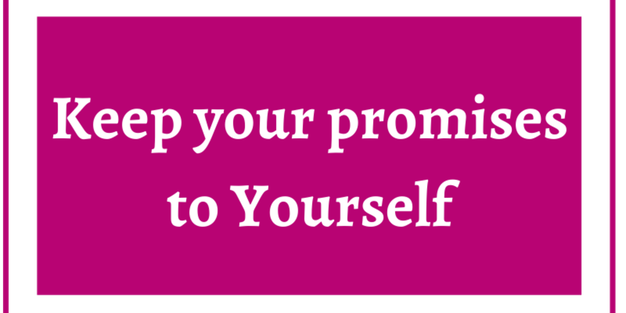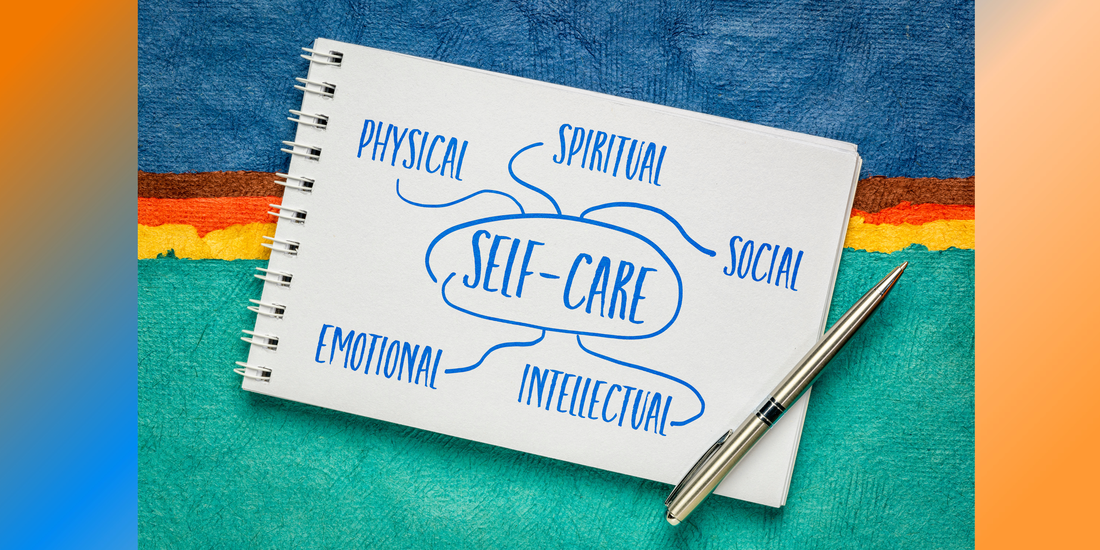|
About eight years ago, I promised myself that I would stop breaking promises to myself. Unfortunately, I am not perfect so from time to time, I break a promise that I've made to myself. However, when I remember the promise that I didn't keep I go back (or move forward) to making that promise a reality because I am Worthy. I recently found this journal post that I wrote to myself and thought I'd share some of it with you.... So it’s 9:33am but I’m still going to write for at least 15 minutes. I’ve missed the last two days and even had the thought of not worrying about today. But I think something is shifting within me because I looked at the clock and said to myself, “just because it’s after 9”0clock doesn’t mean you missed writing for the day. There is still time. Keep your promise to yourself.” I like that, keep your promise to yourself. So many times I’ve made self-promises that were broken. It becomes a habit sometimes and that's not a good thing. Making promises to yourself and keeping those promises, I believe, is an act of making yourself a priority. Keeping promises that you make to yourself helps to foster and maintain self-confidence, especially when there is a lack of self-confidence. Personally, it makes me feel stronger and more powerful. I’m pretty good at keeping promises that I make to other people, and that’s something I’m proud of and keeping ALL of the promises I make to myself would make me even prouder. I'm sure you will agree that some promises are easy to keep but there are some that require a bit more effort. However, a promise isn't something to be thrown around lightly. If you promise something to someone, you must try your best to make it a reality. If you are the type of person who promises big things but never delivers, then no one will take you seriously, including yourself.
When you fail to keep promises to yourself your self-confidence takes a big hit. You start to lag or put things off in your life because sub-consciously you don't trust yourself. Would you trust someone who consistently broke the promises that made to you? When you keep promises to yourself, you are showing yourself that you are trustworthy; it is empowering and instills true self-confidence. Studies that show that keeping a promise to yourself not only helps improve your confidence but it also helps you feel strong and it helps increase your productivity and your happiness. Keeping promises to yourself leads to a better life, the life of your dreams.
0 Comments
The essence of self-care is to take care of yourself physically, emotionally, and mentally. It’s meant to help you be well, be healthy and thrive within all areas of self, including your mind, body and spirit. The good news is that people are finally realizing the importance of self-care for themselves and their loved ones. In fact, according to Google Trends, the number of people searching the term ‘self-care’ has more than doubled in the past few years. If you’re interested in being healthier, calmer, more centered, and less anxious, then you’ve come to the right spot. We’ll talk about the five areas of self-care you can’t ignore so you can start making it a priority in your life. Let’s dive in. 1. Mental/Emotional Self-Care Mental, or psychological, self-care is the first thing people usually associate self-care with because it helps clear your head and release anxiety. The great thing is that there are so many things you can do to practice this type of self-care. They’re all designed with one aim: to improve your personal growth and boost your confidence. They also have a great impact on your overall mental well-being. One of the most common activities is positive affirmations and learning how to redirect negative self-talk. Other activities include:
Activities that help promote emotional self-care are all about helping you contemplate, handle, and reflect on your feelings in a healthy way. Once you know how to do that, you have better control over your behavior and actions. It’s worth mentioning that the way you deal with your emotions says a lot about how much you love and appreciate yourself. 2. Self-Care For A Better You Practical self-care involves all aspects of life. It relates to the tasks you complete each day that help you feel fulfilled and happy. Examples Of Self-Care For A Better You Include
3. Social Self-Care Many people think self-care is all about spending time alone. While that may be part of it, it’s not completely true. A large chunk of taking care of yourself relies on the relationship you have with others. Whether it’s family, friends, or colleagues at work, they all have an impact on how you feel about yourself. If anyone in your life is bringing in toxic energy that’s somehow affecting your self-esteem, you have to cut them out of your life. Why would you keep people around who only make you feel bad? On the flip side, you should spend more time with the people who support and encourage you. So, a good way to practice social self-care is by having weekly dinners with your family or going out with friends. Examples Of Social Self-Care Include
4. Physical Self-Care This is probably the most talked-about type of self-care worldwide because it has to do with the kinds of food you consume and how much you exercise. It also focuses on how much you’re staying hydrated and how much sleep you’re getting each night. Another important aspect of physical self-care is taking a break from work or chores whenever you need it. It may seem like a small thing, but it can greatly affect how you feel about yourself. Besides eating right and working out, try getting a massage or a nice mani-pedi to lift your mood and boost your confidence. Examples Of Physical Self-Care Include
5. Spiritual Self-Care
Spiritual self-care is all about taking care of your soul, aka your ‘true self.’ This type of self-care doesn’t involve religion or any faith-based theories. It’s simply doing the things that nurture your spirit and feed your soul, and to promote inner peace, calm and serenity. There are many things you can do to practice spiritual self-care. Yet, the two that come to mind are meditation and yoga. Both these techniques allow you to be present in the moment without any distractions or judgment. They also teach you how to appreciate being still and simply focusing on your breathing. Examples Of Spirit Self-Care Include
According to the Merriam-Webster dictionary, gratitude is defined as “The state of being grateful.” It is a simplistic definition for a word that can mean a whole lot. We have all likely felt gratitude towards people throughout our lives. It could be because of something we were given or had done for us. Having someone be grateful to you is a great feeling but it can also be beneficial for the person expressing the gratitude as well. (https://www.merriam-webster.com/dictionary/gratitude). What Is Gratitude? According to Psychology Today, gratitude is a spontaneous feeling that we experience when something has been done for us. It is also suggested that embracing gratitude can be a good practice for mental health. This is a positive emotion that not only feels good inwardly but sends out positive energy outwardly as well. (https://www.psychologytoday.com/us/basics/gratitude) The Importance of Gratitude A regular practice of gratitude not only boosts our happiness and mental health but can also impact our physical health as well. Choosing to focus our energies on the positive emotion of being grateful for what we have distracts us from the negative feelings of what we do not. How Gratitude Can Heal Psychologist Lisa Firestone Ph.D. suggests that gratitude is one of the most important tools to attaining success in our modern world. According to Dr. Firestone, gratitude helps us better understand ourselves and our personal values. As a result we can be more centered emotionally and find healing in a number of ways such as:
All of these positive effects can go to support a brighter more positive outlook on life. When we appreciate what we have and what we are given we can better deal with disappointment. The most important thing to consider with gratitude is there is no downside to being grateful. How To Embrace Gratitude Although gratitude is a spontaneous emotion that we most commonly experience in the moment of receiving something we can also learn to be more grateful. It is often hard to muster gratitude for the things we already have which can be limiting. Berkeley University suggests a few tips that can help people boost their feelings of gratitude which includes.
Final Thoughts Gratitude can work in both directions; we can feel good for things we have and we can feel good for giving to others. It is an easy emotion to embrace and can really help heal your emotional and physical health. |
Archives
November 2022
Categories
All
|



 RSS Feed
RSS Feed